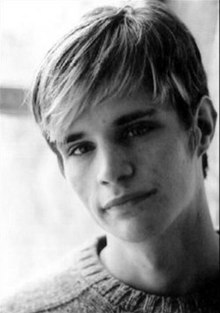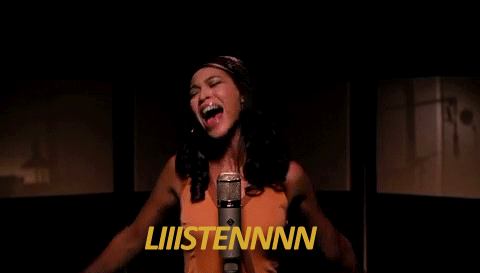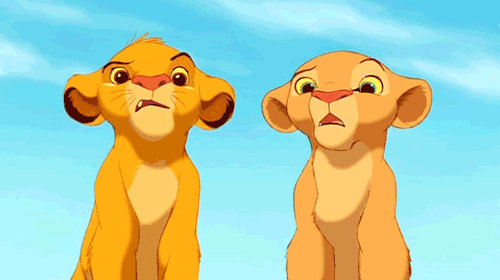Hello World:
A gay guy, a black guy, and a Mormon walk into a bar…but only one person entered: Me. (Insert rimshot here)
Maybe I should clarify for you all: I am gay, I




Take me for example:
1. I am a dude…simple enough.
2. I am gay...oops! Now things start to get more interesting.
3. I am black...wait can you be gay and black at the same time? I can imagine this is like dividing by zero to a computer: "Does not compute...Error...$%&#@*!!!"
4. I was Mormon til about the time I was 18 (thank you college)...Commence system overload and subsequent meltdown...the computer crashes.
All I am trying to say is that preconceptions follow each stereotype and sometimes they don't always fit. In fact these often do not match up, which I can tell you is stressful! You constantly ask yourself: What is 'normal?' and why am I not it? These competing stereotypes force the subject of scrutiny out of whatever neat little box whoever is passing judgment is trying to put them in.
When someone judges you they go about it a few different ways whether that person:
1. Reconciles the new information and expand their thinking. (The ideal choice)
2. Shuts down because they cannot accept the situation; ignoring what they do not like or understand. (Not so much)
3. Attacks the person verbally, physically, mentally, emotionally...it all sucks. (Not cool)
Intersectionality is a term that academics throw out when talking about identity. Whole studies are devoted to the notion that identity is not
But enough about me. Let's talk about this blog!
For this blog I am going to focus on issues surrounding the gay community and the intersectionality of religion...specifically: Mormonism. I believe it is the fear of what we do not understand or what we do not like that is so powerful and can lead people to monstrous extremes. The representation of Mormons in the media has been unfair at times I'll admit, but the representation of gays among Mormons certainly has a documented history - that continues today - of demonizing and disqualifying its homosexual members.
I hope to break the stereotypes that people make and participate in on both sides. This active ignorance goes on far too much as such films as Milk, and Brokeback Mountain have shown us. Or, even more troubling, real life examples like Matthew Shepard.

Even One Million Moms, though far from killing anyone, has made it a mission to attack all positive representations of gay people in the community. From Glee to a simple JC Penny or Gap ad,

they make sure their displeasure is noted and broadcast to the world. I am going to use my own voice to add to those in favor of progress in the gay community. I will look at the progress we have already made and the battles still to be fought. I hope that at least a few people will think about these questions I’ve raised. Why are we so determined to place three dimensional, living people into simple categories?
So for now I just wanted to say hello! Til next time all you gays, lesbians, bisexuals, transgendered peeps, and yes all you Mormons that want to support us or even just learn more about our struggle for equality and the simple right to love who we want! I think there's a song that says it all:
Profile Post:
Ever have that moment where you're in a bookstore and as you peruse the aisles you see something that catches your eye…as you reach for it, out of nowhere, someone else reaches for the same book?
It is a moment of connection- of clarity- you both were drawn to the same conclusion or inspired by the same thought and for a moment there some recognition passes between you.
This is like that…
Except it's more of a one way experience on my end as I read up on some other blogs I follow. As a gay ex-Mormon I find that I occupy a narrow sliver of society so when I find people that have gone through the same experience it gives me a sense of solidarity.

So I'm giving a huge shoutout to Jonathan Adamson who writes the blog "In These Gay Mormon Shoes"
Now our styles are very different, but I agree with most of his arguments and hope he would to some of the arguments I've made in some of my posts. His experience as a BYU student makes him much more credible than I...rejecting my acceptance to BYU and going off to a secular university in a major
For instance one post puts forth a simple question to talk about bias and how society perpetuates injustice. He takes the edge off some of his sharper arguments by including himself as part of a larger community as well as directly addressing the reader…but the question remains:
"Pretend we lived in a world where gays were treated equally. People's sexual orientation was of no interest to anyone and no one expected another person to be one way or the other and wasn't surprised or shocked one way or the other. Everyone had equal rights and equal representation. It was not a social taboo. Someone telling another person that they were gay was equivalent to telling him/her that their favorite color was green. In other words, there is no added stress or pain or discomfort to a person's life if he/she were gay.
1. Would you want your child to be straight or gay? Why/ Why not?"

The effectiveness of the post, at least for me, is the desire to intrigue rather than to attack. Although he has his fair share of argumentative posts, he remains analytical (to the extent that anyone can on an issue that hits so close to home). He decisively organizes his posts so readers know when to expect opinion, and when to expect argument.
Always topical to Gay Mormons, his posts range from the intricacies of dating in the gay community to talks given by General Authorities (Church leaders for those of you unfamiliar with Mormonism). He also recognizes a journey, the one he went on, the one the gay community is going, where Mormonism is headed, and where his audience may be on their journey. By sharing his own story, he recognizes the individual, which makes his blog more dynamic. He even reads and responds to the comments he receives, changing the rhetoric where he sees fit or perhaps even more boldly defending his position when he disagrees. Point is: the readers are listened to.

As he says in one post: "I will always have my past. Mormonism will always be a part of me. I was raised in the church. Of course it will continue to influence how I think and how I approach ideas of deity and spirituality. I will still carry the fond memories in the church with me as well as the bad ones. But I will no longer be a Mormon. I suppose I will be an ex-Mormon... although ex sounds so harsh. I will be previously Mormon. ;)"
Go read his blog I guarantee you one of two things: you will change your perspective on these issues, or you will at least begin to understand them a little better.
Voice Post:
How many licks does it take to get to the center of a Tootsie Pop? What would you do for a Klondike Bar? Can you hear me now?
Since the invention of the question, people decided that there also needs to be an answer. But I ask you what if we used the question to simply consider the possibilities? Not everything needs a quantified answer because let's face it we still can't figure out the meaning of life...
The only way to make it through life as far as I'm concerned is with curiosity (even though it killed the cat). How boring would the world be if everything was finite and so easily quantified?
So when I read, "Confronting What We Don't Know" by JonJon I recognized immediately his own curiosity on the subject. Starting off with rhetorical questions, he allows his readers to wonder with him as he explores the ongoing dilemma that gay members of the Church face.
"Have you ever stopped to consider the enormity of what you don’t know? Or what about the things that you don’t even know that you don’t know? Trippy right? I'll admit There’s a certain amount of comfort that comes with believing I know much more than I actually do...in being able to wrap difficult and complex issues up into neat and tidy little packages."

He however, shies away from this trap of simplicity. I think leading with these questions helps temper his argument by admitting he doesn't have an answer. It then becomes a shared journey between him and the reader as they both try to consider these questions with no one right answer. This gives him a much softer voice than many of the other blogs I've read on the topic (especially my own). He allows the audience to relax, pull up a chair and form their own opinion, while sharing his own. I've made similar claims in previous posts when talking about stereotypes and the lengths people go to label other people.
So when he says, "As I was reading it [Petrey's Paper, "Towards a Post-Heterosexual Mormon Theology"], it felt very much like he was loosening and tilling the hardened soil of what we think we know about not just sexuality, but also about gender, gender roles, procreation, the purpose of relationships, etc. Sometimes we project the way we experience our mortal lives onto the heavens and eternity, instead of seeking to inform and enrich our mortal experiences with instruction from heaven or the divine."

However, rather than making accusations, he shares his own guilt with us; disarming us and allowing us a real moment of self-reflection. He answers his own questions with more questions. This choice in structure mirrors the complex nature of the topic. There are no answers only more questions (will it ever stop?). From this introduction he uses an inquisitive voice to ease us into the main subject of the blog: we have to approach the conversation surrounding homosexuality and spirituality with, as he says, a sense of "openness, patience, humility, courage, and thoughtfulness."
"As you can see, the questions begin to mount. I know, I know, just put them on a shelf and trust in God. How long is that a viable and effective strategy though? What are we missing out on by not allowing ourselves to wrestle with these questions? Can we expect God to just hand us the answers if we’re not willing to wrestle with these questions ourselves and together?"

Here the voice shifts as he anticipates the answers to his questions. By the simple "I know I know," he shows the audience that he is aware of the counterarguments out there. He knows the Mormon way because he knows the culture. So this phrase operates on several levels: establishing his expertise and giving the opportunity to respond to his opposition.
He anticipates and then challenges. I think this shows a stronger voice than he uses previously, which effectively forces the audience to react to the shift. Now it is up to them to answer these questions individually. He urges us all to actively engage with doctrine, scripture, even calling on the individuals living through these, as he says, "Seemingly dissonant identities" to consider things with an open mind as well.

No comments:
Post a Comment